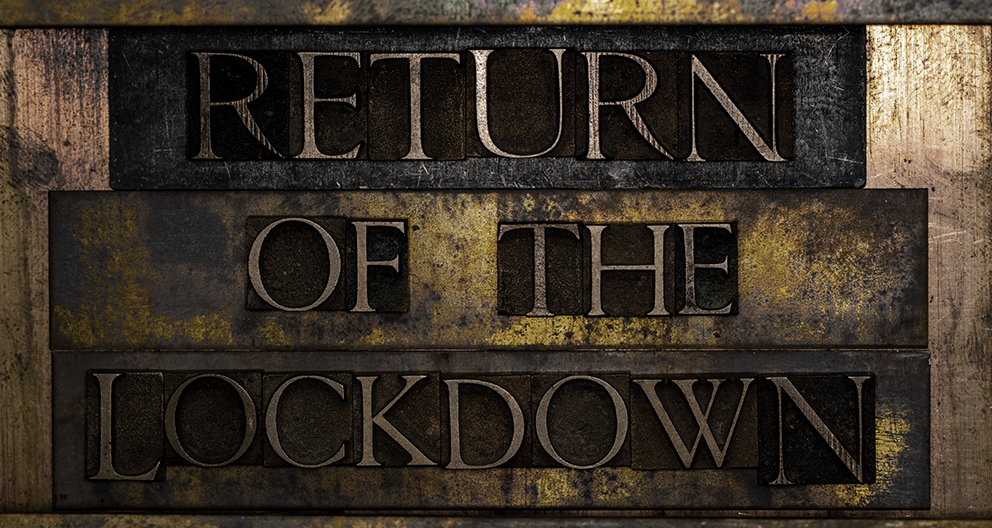
Note to governors: Self-government is still possible in times of emergency
For the next several months, maybe even years, we will be hearing about the long-lasting effects of the “coronavirus shutdown.”
There will be ongoing public debate over how Nevada “should” have responded to the global pandemic as we learn more about the virus and the consequences of shutting down an entire state for months on end.
However, that debate somewhat misses the point. The steps Governor Sisolak took in response to the pandemic rightly deserve criticism—but so too does the fact that he, and he alone, had the authority to craft, implement and execute policies that profoundly impacted every single worker, business owner and student in the state.
Such a concentration of power in any governor should inspire reform of the state’s approach to emergency powers, regardless of how one might feel about shutting down businesses to fight a pandemic or infringing on civil rights in the name of the “common good.”
Of course, nationally, Gov. Sisolak wasn’t alone in his ability to unilaterally shutdown the economy. Governors across the country made similar policy decisions—based on stark apocalyptic predictions of overrun hospitals and death counts in the millions—that decimated the livelihoods of their constituents.
Such emergency powers are not without precedent. Every state in the nation allows their executive branch aggressive policing powers to respond to genuine emergencies. The reasoning makes sense, given that the cumbersome, deliberate, and partisan legislative process is generally ill-equipped to respond quickly in a crisis.
Clearly, a global pandemic caused by a mysterious and highly contagious virus isn’t going to wait patiently while lawmakers bicker about the best way to respond.
However, that doesn’t mean such executive powers should be unlimited, or that the duration be indefinite. While the executive order that Gov. Sisolak signed was undoubtedly well intentioned, as weeks turned into months, it became painfully obvious for many Nevadans that their livelihoods depended entirely on his opinion of what businesses were “essential” or how much risk he thought Nevadans should be allowed to take.
What began as a two-week shutdown of private businesses, religious observances, and social gatherings here in Nevada, soon escalated into months of moving goalposts, unclear guidelines for reopening and conflicting reports on the severity of the actual emergency itself.
Initially, we were told mass-quarantine was necessary to keep hospitals from being overrun with dying patients. However, we soon were hearing about hospitals laying off staff due to a steady decline in admittances. Nonetheless, the shutdown of Nevada continued, with Gov. Sisolak essentially declaring house arrest for all Nevadans until health officials observed a steady decline in new cases—regardless of the severity of those cases.
As Nevada continued experimenting with government-by-executive-order, businesses were forced into bankruptcy, workers into breadlines, and students into limbo. Like many governors across the nation, Gov. Sisolak took it upon himself to experiment in quarantining an entire state’s population as a way to “flatten the curve” and slow the spread of the novel coronavirus without so much as a single vote from the lawmakers elected to represent the very people having their lives turned upside down.
Allowing any governor to act unilaterally on issues that so directly impact workers, business owners and students—for months on end without clearly defined objectives—is a scenario that is simply unconscionable in a democratic republic. Responding to emergencies doesn’t require abandoning the principles of democratic self-government.
As such, at least one lawmaker, Republican Jim Wheeler, has recently proposed limiting a governor’s unchecked emergency powers to two weeks without legislative approval. Such a reform might not have acted as a bulwark against some of the most egregious policy mistakes of the last several months, but it would have at least allowed a more diverse and public debate on how we, as Nevadans, should handle the virus, our economy and our reopening.
Unfortunately, the status quo allows the governor—whoever that may be—to put our right to self-government on hold in times of emergency. And that, as much as any specific policy decision made by Gov. Sisolak in recent months, is what has led us to the economic challenges we now face.
This article was originally published in the Nevada Business Magazine.

